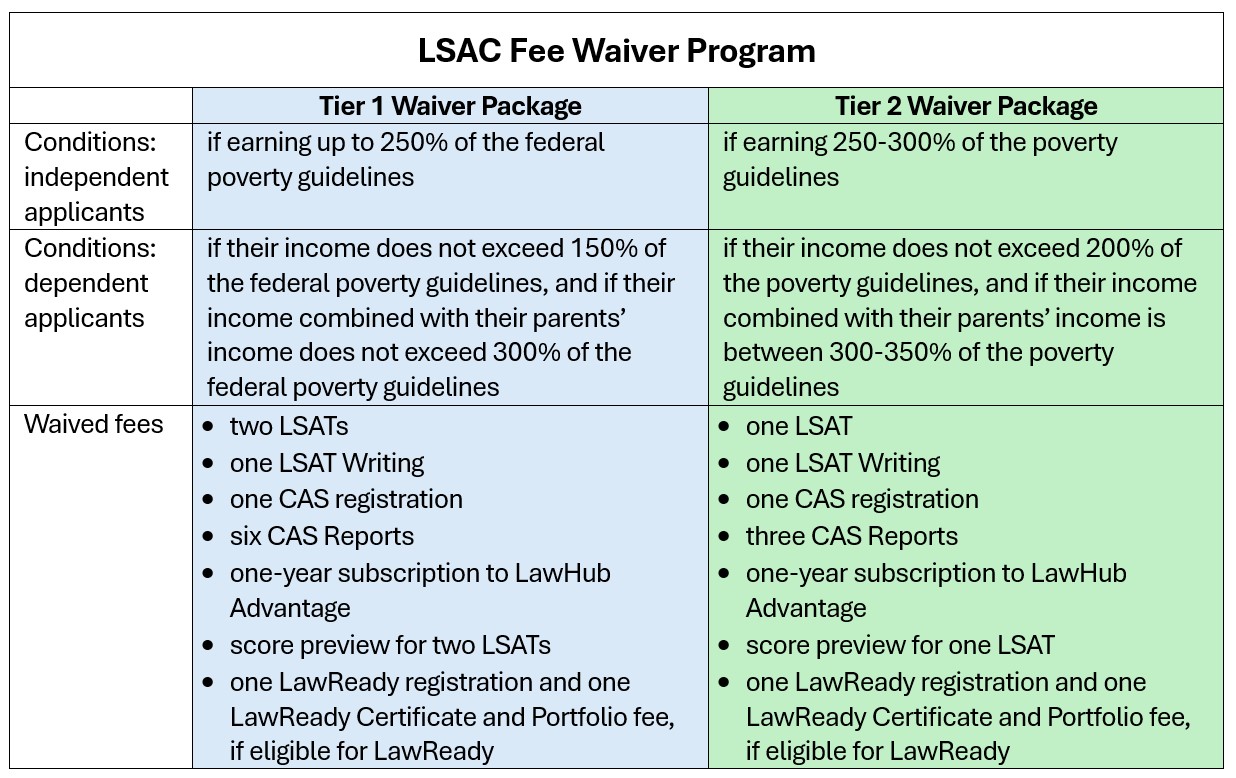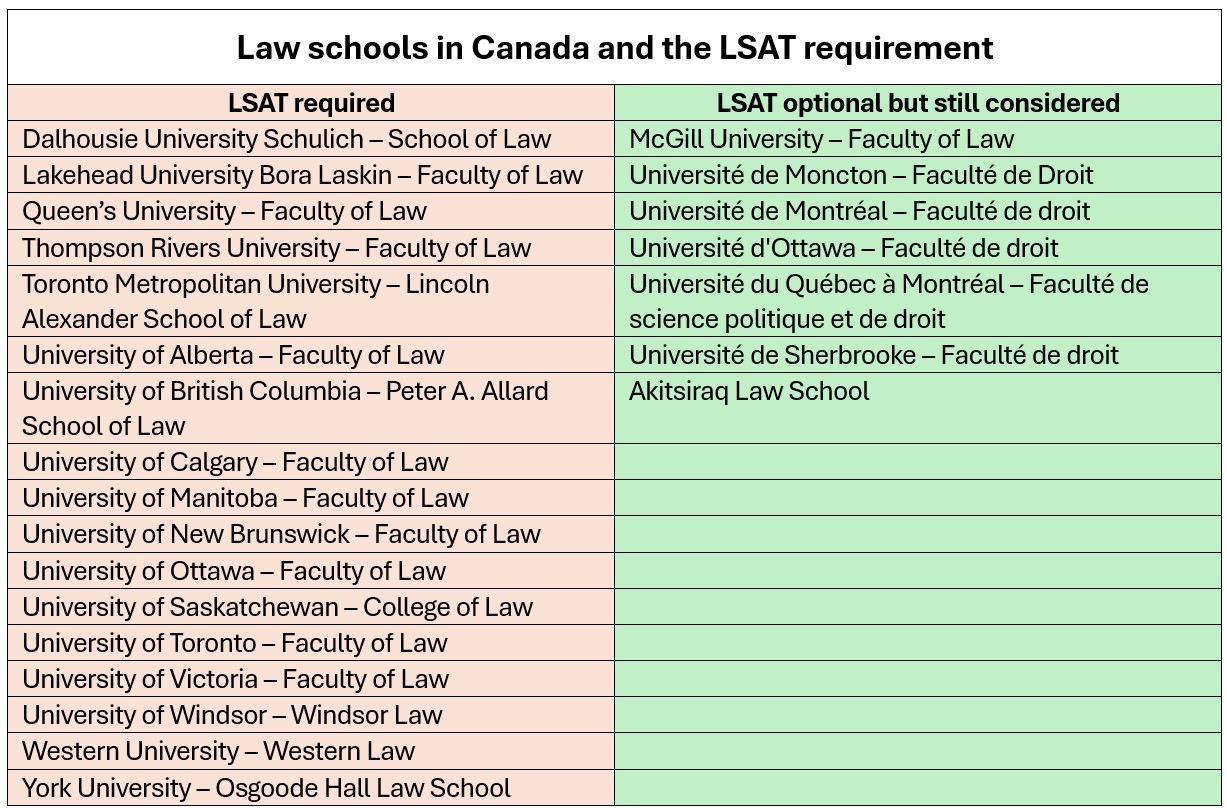
Find out what your LSAT preparation might look like, things that you need to consider, and which law schools require the LSAT

Getting into a law school in Canada is a challenging task, but not impossible to achieve. Part of the challenge is taking and passing the law school admission test (LSAT). In this article on how to prepare for the LSAT, we’ll share what to expect during the exam to help you do well.
We’ll also go over how the LSAT works, when to take it, and how to qualify for fee waivers. Not all law schools require LSAT scores, and we’ve included a listing of law schools that do require LSATs.
Here’s everything you need to know about LSAT preparation.
The Law School Admission Test (LSAT) is a requirement for admission in most law schools in Canada. Conducted by the Law School Admission Council (LSAC), this test has become a standard by these law schools to measure your admission application, in addition to the other requirements they prescribe. In addition, the LSAT is also used to predict your performance for your first year in law school.
Having an idea of how it works is part of your LSAT preparation. The LSAT consists of two main parts:
As an initial resource for your LSAT preparation, watch this prep video from LSAC:
For more resources to help you in your journey to become a lawyer, check out our Legal Education page.
According to LSAC, the LSAT is scored on a scale from 120 to 180, which is based on the number of questions you answered correctly. Each question is weighed equally; no specific question weighs greater than the others, and there is no deduction for incorrect answers.
As for the admission standards of Canadian law schools, most of them prefer LSAT scores between 150 to 160. If you scored lower than 150, and if your preferred law school requires that you still submit it, you don’t have to worry since law schools measure your application holistically. This means that law schools will consider your application in relation to your other requirements aside from your LSAT score.
Your LSAT Score Report will include your:
It’s important to put a lot of effort into your LSAT preparation, as it’s one of the metrics that you’ll be judged on when you apply to a law school. Here are four tips for your LSAT preparation:
The bulk of your LSAT preparation is to know how it works, such as the type of questions you may be asked or the components of the test.
While LSAT is a mix of multiple-choice questions and a writing test, it’s structured to measure your analytical thinking, reading comprehension, and reasoning. As discussed above, the LSAT has four multiple-choice sections, plus the LSAT Writing. During your actual test day, you will have a 10-minute intermission between the second and third sections as your break.
There are two options available:
Whether you’re taking it online or in person, the LSAT will be administered through LawHub. LSAC suggests that you familiarize yourself with LawHub as part of your LSAT preparation. There are also LSAT prep tests that are available through LawHub to help you see what the LSAT will look like.
Aside from learning the interface of the LawHub, it’s also important that you’re ready with the technical requirements of ProProctor:
|
screen resolution |
1920px x 1080px (recommended) |
|
operating system |
Windows 8.1 |
|
|
MacOS 10.13 or higher except for 13.0 through 13.2.1 |
|
webcam |
resolution of 640px x 480px |
|
internet speed |
download: 1.0mbps (recommended 5.0mbps) |
|
|
upload: 0.5mbps |
|
not compatible or supported |
using mobile device as a web camera |
|
|
taking the exam using an iPad or Android tablet |
|
|
using VPNs, firewalls, and Virtual Machines (VMs) |
|
microphone |
must be enabled |
If you’re taking the LSAT online, here are some guidelines:
Watch this video to learn more about ProProctor:
To further guide you during your LSAT preparation, head over to our complete list of Canadian law schools, which has all the necessary details to help you in your applications.
The LSAT is offered in:
Part of your LSAT preparation is to estimate when you are going to take the LSAT, which must coincide with the latest score that your targeted law school will accept.
For instance, Western University’s Faculty of Law suggests that its applicants take the LSAT during the summer after their third year in their undergraduate degree. This is strategic; if applicants don’t do well on their first try, they can retake the LSAT by January of next year. This is right before they’ll be applying to law school.
For more on Western University, read our article on the best law schools in Ontario.
After researching how it works and deciding when you’re going to take the test, you can then estimate the time to prepare for the LSAT. While most would say that two months before your primary test is enough to study for LSAT, it will still depend on your personal capacity and resources.
To help you with your materials for your LSAT preparation, here are some suggested resources:
These would be subject to different fees, formats, and styles. For example, LSAC’s The New Official LSAT TriplePrep contains official prep tests, answer key, and score-conversion tables. In addition, your own undergraduate college or university and the law school where you want to apply may have their own LSAT prep courses that you can use.
Read next: Books on how to be a lawyer
The LSAC offers fee waivers for its products and services, including the fee you need to pay to take the LSAT. Called LSAC Fee Waiver Program, it’s offered to help financially challenged law school applicants, based on LSAC’s strict application process.
To be eligible for a fee waiver, you must be:
If eligible, the LSAC Fee Waiver Program has two tiers, which also depends on certain standards set by LSAC:

Taking advantage of these waivers will help you allocate more of your resources to more important fees and expenses.
LSAT is one of the most important Canadian law school requirements, although it’s not required by all law schools. Having the liberty of choosing what would they require for admission, one law school may treat your LSAT score/s differently from another. Each law school would also provide how they would weigh your LSAT score/s, in relation to the other requirements.
Here’s a summary of how a Canadian law school may consider your LSAT score/s:
Canadian law schools kept the LSAT requirement despite Harvard Law School’s move to replace it with the Graduate Record Exam (GRE) in 2017. (Today, Harvard accepts both the LSAT and GRE as part of its admission requirements.)
Each law school evaluates your LSAT score/s differently, which makes it important to check with the law school of your choice about their LSAT requirement. Here are some instances when a Canadian law school would consider your LSAT score/s:
Knowing how a law school treats your LSAT score/s will help you figure out when you should take the LSAT, and how many times you can take the exam to get the best results.
Most Canadian law schools which do not require the LSAT are found in Québec. Although there are also other law schools in the common law provinces which also do not require the LSAT.
Below is the listing of law schools that require LSAT:

Exploring how the LSAT works, estimating when you should take the exam, taking preparatory tests, and checking if your fees can be waived are just some of the LSAT preparations that you can do. But even after all these steps and if you still get a low LSAT score, there are still other alternatives that you can resort to, i.e., improving on the other law school admission requirements.
The LSATs can set you up for success in law school and beyond. Preparing for your LSATs can give you a huge advantage, so don’t take it for granted.
What’s the most important thing you can do as part of your LSAT preparation? Let us know in the comments